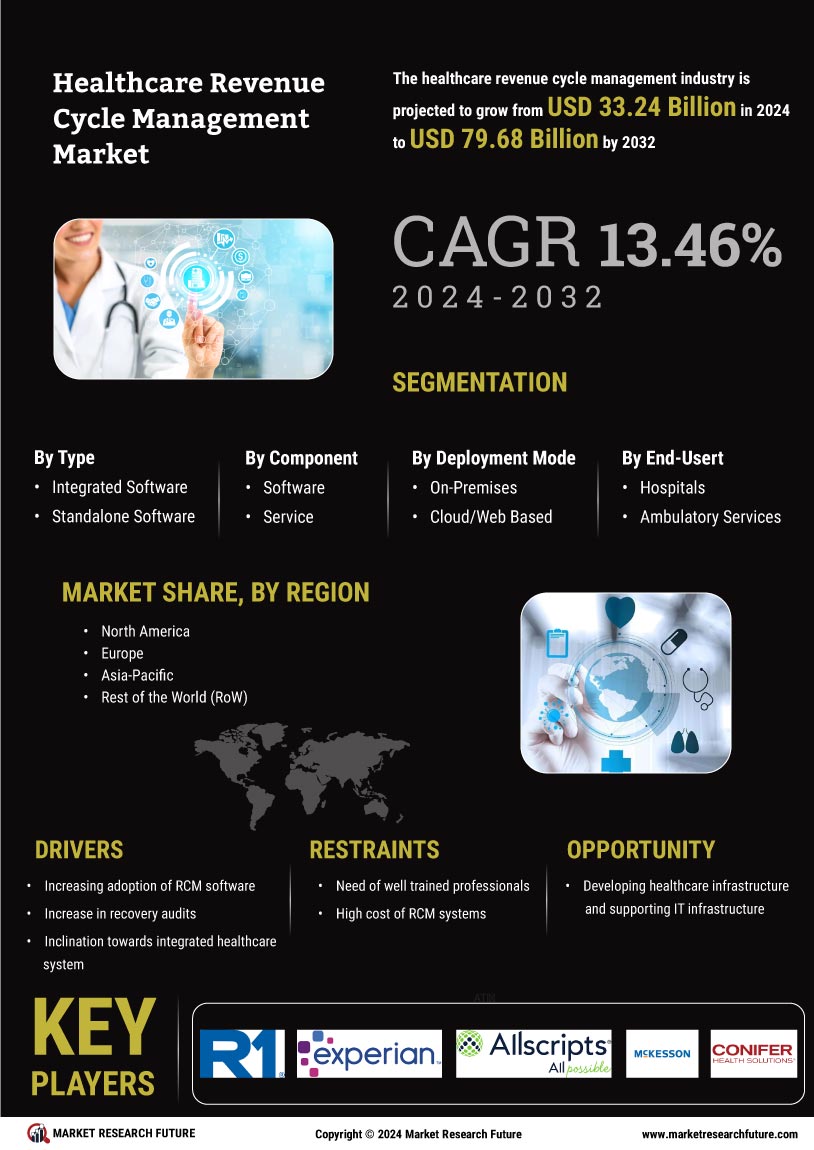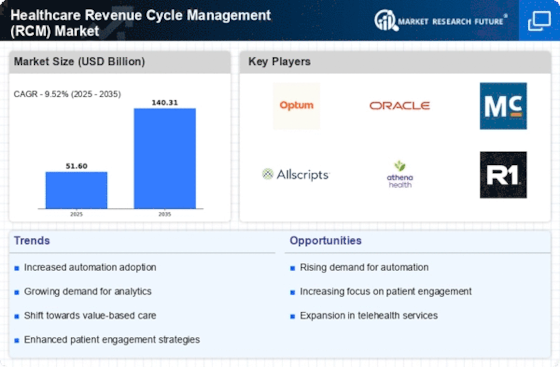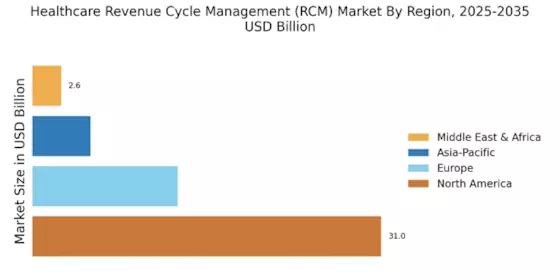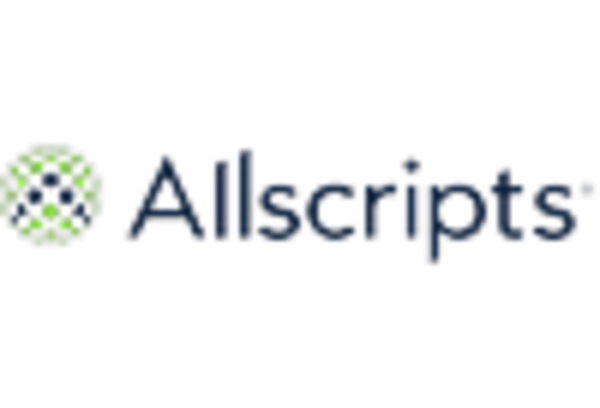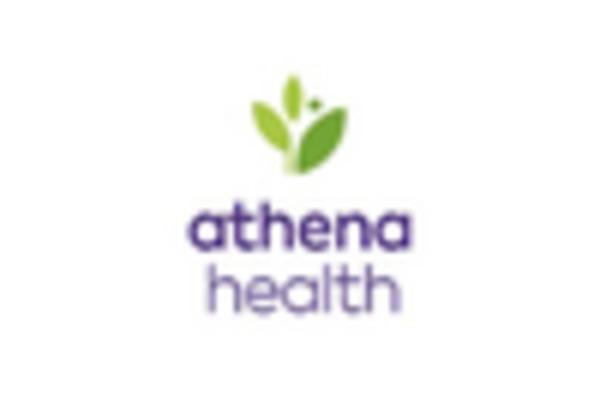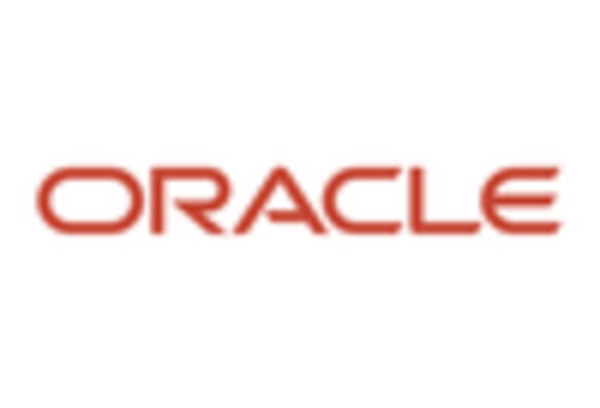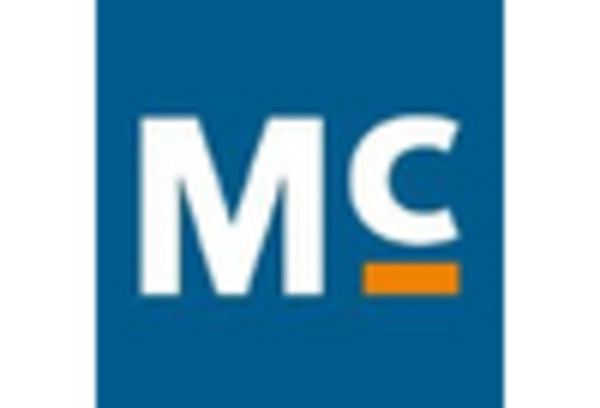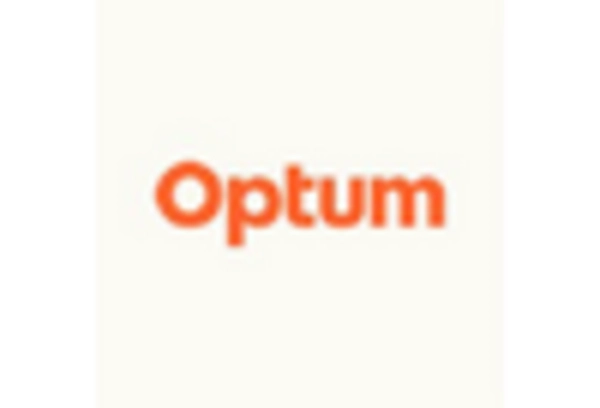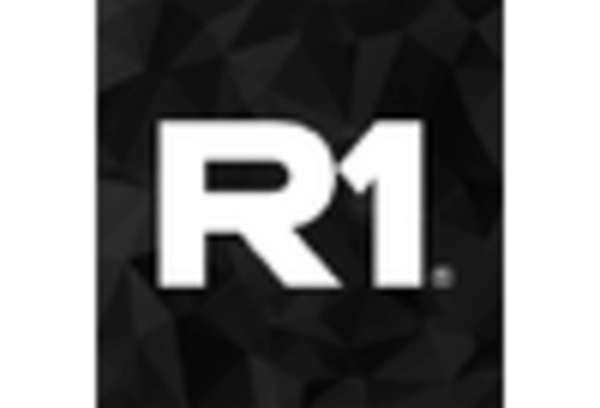Rising Patient Financial Responsibility
The increasing financial responsibility of patients is a pivotal driver in the Healthcare Revenue Cycle Management Market (RCM) Market. As high-deductible health plans become more common, patients are shouldering a larger portion of their healthcare costs. This shift necessitates that healthcare providers adopt RCM solutions that effectively manage patient billing and collections. Organizations are now focusing on enhancing transparency in pricing and payment options to improve patient satisfaction and reduce bad debt. Data indicates that healthcare providers that implement patient-friendly billing practices can see a 15% increase in collections. This trend highlights the importance of addressing patient financial responsibility within the Healthcare Revenue Cycle Management Market (RCM) Market, as organizations strive to balance financial viability with patient engagement.
Shift Towards Value-Based Payment Models
The transition from fee-for-service to value-based payment models is reshaping the Healthcare Revenue Cycle Management Market (RCM) Market. This shift emphasizes quality of care over quantity, compelling healthcare providers to adopt RCM solutions that can effectively track and report performance metrics. As value-based care becomes more prevalent, organizations are increasingly investing in RCM technologies that facilitate data analytics and reporting capabilities. Recent statistics indicate that healthcare providers utilizing value-based payment models can achieve a 20% increase in revenue through improved patient outcomes and reduced readmission rates. This trend not only enhances financial performance but also aligns with the broader goals of healthcare reform, making the Healthcare Revenue Cycle Management Market (RCM) Market a focal point for innovation and investment.
Regulatory Changes and Compliance Requirements
The Healthcare Revenue Cycle Management Market (RCM) Market is significantly influenced by evolving regulatory changes and compliance requirements. As governments and regulatory bodies implement new healthcare policies, organizations must adapt their RCM processes to ensure compliance. This includes adhering to standards such as HIPAA and ICD-10 coding regulations, which necessitate robust RCM solutions capable of managing complex compliance landscapes. The financial implications of non-compliance can be severe, with potential penalties reaching millions of dollars. Consequently, healthcare providers are increasingly investing in RCM technologies that offer compliance tracking and reporting features. This trend underscores the critical role of regulatory compliance in shaping the Healthcare Revenue Cycle Management Market (RCM) Market, as organizations seek to mitigate risks and enhance operational integrity.
Increasing Demand for Efficient Billing Solutions
The Healthcare Revenue Cycle Management Market (RCM) Market is experiencing a surge in demand for efficient billing solutions. As healthcare providers strive to optimize their revenue cycles, the need for streamlined billing processes becomes paramount. This demand is driven by the rising complexity of healthcare billing, which includes various payer contracts and reimbursement models. According to recent data, healthcare organizations that implement advanced RCM solutions can reduce billing errors by up to 30%, thereby enhancing cash flow and operational efficiency. The increasing focus on patient satisfaction further amplifies this trend, as accurate and timely billing is crucial for maintaining positive patient-provider relationships. Consequently, the Healthcare Revenue Cycle Management Market (RCM) Market is likely to witness significant growth as providers seek to adopt innovative billing technologies.
Adoption of Advanced Analytics and AI Technologies
The integration of advanced analytics and artificial intelligence (AI) technologies is transforming the Healthcare Revenue Cycle Management Market (RCM) Market. These technologies enable healthcare organizations to analyze vast amounts of data, identify trends, and make informed decisions that enhance revenue cycle efficiency. For instance, predictive analytics can forecast patient payment behaviors, allowing providers to tailor their financial strategies accordingly. Recent studies suggest that healthcare organizations leveraging AI in their RCM processes can improve collections by up to 25%. This technological advancement not only streamlines operations but also enhances the overall patient experience by providing personalized financial interactions. As a result, the Healthcare Revenue Cycle Management Market (RCM) Market is poised for substantial growth driven by the adoption of these innovative technologies.
